Breakout Sessions
A Conversation with Reginald Dwayne Betts
A moderated discussion with Dwayne Betts on art as advocacy, the work of writing
poems, the academy and the prison, and the world we want to create. There will
be plenty of time for questions.
 Katy Ryan, WVU Professor; Founder of Appalachian Prison Book Project
Katy Ryan, WVU Professor; Founder of Appalachian Prison Book Project
Ryan teaches graduate and undergraduate courses in twentieth-century American
literature, prison studies, and literary research. In 2004, she founded the Appalachian
Prison Book Project (APBP), a nonprofit that mails free books to people imprisoned
in six states, facilitates prison book clubs, and provides college tuition for
incarcerated students. She has taught literature classes at a federal prison and
a Pennsylvania state prison as part of the Inside-Out Prison Exchange Program.
These classes bring on-campus undergraduates and incarcerated students together
to learn in a dynamic educational space. Ryan's research focuses on the history
and literature of imprisonment in the United States. She is the recipient of the
Sigma Tau Delta Outstanding Teaching Award; the Neil S. Bucklew Award for Social
Justice; the WVU Foundation Outstanding Teaching Award; the Eberly College Outstanding
Teaching Award; and the James and Arthur Gabriel Brothers Faculty Award for teaching
and service.
Criminal Justice Reform in W.Va.
Criminal justice reform advocates and legislators will discuss policy priorities
for the upcoming legislative session which kicks off in February 2021, including
restoring voting rights for people on probation and parole; removing barriers to
reentry; sentencing reforms; and expanding alternatives to incarceration.

Lida Shepherd, American Friends Service Committee
Shepherd works with AFSC’s West Virginia Economic Justice Project a community
organizing and advocacy program. She coordinates racial justice initiatives such
as reducing racial disparities in the education and the criminal justice system,
as well as policy reforms that address poverty. She coordinates students in middle
schools, high schools, and colleges around West Virginia to be leaders in policy
advocacy and secure wins for poor and working people. Prior to her work with the
WV Economic Justice Project, Shepherd directed AFSC’s youth leadership program
in southern West Virginia, where young people led victories for prison and juvenile
justice reform through organizing candidate forums, meeting with legislators, and
speaking at press conferences of the Our Children, Our Future campaign. Shepherd
serves on the boards of the American Civil Liberties Union-WV and the WV Community
Development HUB, and the steering committee of the Our Children, Our Future campaign.
She graduated from the University of California at Berkeley with a degree in Peace
and Conflict Studies and lives with her family in Charleston.

Barbara Evans Fleischauer, (D) Monongalia 51, West Virginia House of Delegates
Delegate Barbara Evans Fleischauer has served 24 years in the West Virginia House
of Delegates. A graduate of Allegheny College and the WVU College of Law, Delegate
Fleischauer has sponsored and passed several pieces of important legislation affecting
women, children, veterans, and disabled West Virginians. She is also the female
member with the longest tenure currently serving in the WV House of Delegates.
Delegate Fleischauer is currently the Minority Chair of the House Judiciary Committee.
She is also a member of the Health & Human Resources, Veterans and Rule-making
Review Committees. In past years, Delegate Fleischauer served as Chair of the House
Constitutional Revision Committee, Vice-Chair of Health & Human Resources,
Co-Chair of the Select Committee on Juveniles & Children, Co-Chair of the Joint
Committee on Veterans Affairs and Co-Chair of the Joint Equal Pay Commission.
Reentry: Building Bridges to a Better Community
In this session you will learn about the Reentry Initiatives across the state of
West Virginia. You will meet unlikely partners, three former inmates working with
a retired correctional professional to develop a path to successful reentry. Collaborative
partnerships are necessary to overcome the over 1,000 collateral consequences to
a felony conviction. Join us to hear the three different journeys of formerly incarcerated
individuals and how they are working together to help others do the same.
Beverly Sharp, Program Coordinator, Criminal Justice Department, Ashland Community
& Technical College; Director of Reentry Initiatives, WV Council of Churches;
Director REACH Initiative

Jeri Kirby, Assistant Professor of Criminal Justice, Chair of Social Sciences,
Fairmont State University
Kirby earned her Ph.D. in Political Science from West Virginia University and
is currently an Assistant Professor of Criminal Justice and Chair of the Social
Science Department at Fairmont State University. Dr. Kirby has a 20-year history
of life and studies in incarceration, beginning with her own incarceration in the
federal system from 1992-1994. After Dr. Kirby’s release, she quickly began her
education focused on understanding and changing correctional policy. After being
introduced to the Inside-Out Program in 2008, she became certified and started
her career as an educator behind the walls of prisons. She currently serves as
the WV State and Federal Coordinator for the Inside-Out Prison Exchange Program,
is a member of Convict Criminology, as well as serving on the WV Advisory Board
to the Civil Rights Commission.

Amber Bjornsson, Peer Employment Support Specialist, WV HIRE Project, West Virginia
Council of Churches
Amber Bjornsson hasn’t allowed her past to define her-- from growing up with alcoholism
and criminal behavior in her family to surviving childhood abuse, domestic violence
and the opioid epidemic. “I felt hopeless,” she said. “I honestly don’t have words
to describe the brokenness that I felt in my soul. When I got to Lakin Correctional
Center I went through the intake and scored for RSAT. I had the desire to change
and gain back everything I had lost.” Now, she works for the West Virginia Council
of Churches helping clients in the same Day Report Center she came through. “I
am thankful to turn the biggest mess into the biggest message of hope.”

Jeremiah Nelson, Southern Reentry Initiatives Coordinator, West Virginia Council
of Churches
Jeremiah Nelson, Southern Reentry Initiatives Coordinator for West Virginia Council
of Churches, is a formerly incarcerated individual. In 2005 he was arrested on
a federal conspiracy and drug charge. He was convicted, sentenced and released
in 2008. Nelson is an avid storyteller and communicator and will share his life’s
experiences with anyone. From growing up in a small Appalachian town to business
success to prison, then from prison to college. After incarceration, Nelson attended
Concord University where he met his future wife and graduated with honors as a
dual major in Business Management, Administrative Systems and Minor in Pre-Law.
He was also awarded the distinction of being a McNair Scholar and had his research
published by the Institute for Operations Research and Management Sciences, Southeast
Chapter in 2013. Nelson now lives in Princeton, West Virginia, and is a Reentrant
Assistant and Reentry Council Coordinator for The West Virginia Council of Churches’
West Virginia Reentry Councils and The REACH Initiative.
Breaking the School to Prison Pipeline
In this session a panel of professionals and those with lived experience will discuss
the link between childhood adversity and adult criminality. We will explore the
impact of Adverse Childhood Experiences, the school to prison pipeline, and the
growing number of ‘Grandfamilies’.
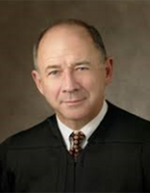
Judge James Rowe, Senior Status Judge
Rowe served as a Circuit Court Judge in Greenbrier and Pocahontas Counties for
19 years. Judge Rowe left active service on the bench in 2016 and became a senior
status judge. In February 2017, Rowe was appointed to a temporary assignment as
Judge of the 28th Judicial Circuit (Nicholas County).
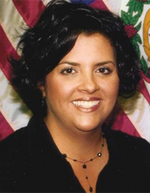
Stephanie Bond, Director of Probation Services, Supreme Court of Appeals of West
Virginia
In July 2017, Bond began her work with the Supreme Court of Appeals of West Virginia
as the Director of Probation Services. Her department oversees the state Drug Treatment
Courts, probation policies, offender database, Interstate Compact for Juveniles
and provides various assistance to the Probation Officers across the State. She
was formerly the Director of the West Virginia Division of Juvenile Services from
July 2014 – July 2017, where she was appointed Acting Director of the Division
in February 2013. Bond previously served as Superintendent of the Kenneth “Honey”
Rubenstein Juvenile Center in Davis West Virginia for nine years. She’s a Clarksburg,
West Virginia native and worked in juvenile corrections from August 1993 through
July 2017. She began her career as a Correctional Counselor at the former West
Virginia Industrial Home for Youth (WVIHY). Bond earned a Bachelor of Science Degree
in Criminal Justice from Fairmont State College and a Master’s Degree in Counseling
from West Virginia University. She is very involved in the State’s Drug Courts
and in working with others to help combat West Virginia’s drug addiction epidemic.
Bond served on the Governor’s Intergovernmental Task Force on Juvenile Justice
and was heavily involved in West Virginia’s Juvenile Justice Reform Initiative.
During her time with the Division of Juvenile Services, Ms. Bond was an active
member of the Council of Juvenile Correctional Administrators (CJCA), as well as
a member of the Correctional Peace Officers Foundation and the Southern States
Correctional Association. Today, Bond resides in Kanawha County.

Teresa McCune, Chief Public Defender, 30th Judicial Circuit, Mingo County
McCune attended Marshall University and Antioch School of Law. She served as Chief
Public Defender for Mingo County, West Virginia for 29 years, before stepping back
to the role of Senior Counsel last year. In her current role, she represents exclusively
children. Teresa has been awarded the West Virginia State Bar’s Lawyer Citizen
of the Year, Young Lawyers‘ Mentor of the Year and was chosen by West Virginia
Executive Magazine for their Lawyers and Leaders program in 2019. She also contracts
with West Virginia Defender Services as Special Events Coordinator/Advisor, She
is a certified JTIP trainer by the National Juvenile Defender Center and she serves
on the board of the Mid-Atlantic Juvenile Defender Center. Teresa is also involved
in many areas of community service and is the founder and director of On Track
for College, an award-winning volunteer counseling program which helps students
with college and scholarship applications and is Chair of the Board of Directors
of Christian Help, a charitable organization which provides direct aid to folks
in need in Mingo County.
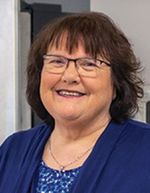
Bonnie Dunn, Statewide Program Director, WVSU Healthy Grandfamilies Program
Born, raised and educated in Kanawha County, Dunn received a BS in Education Comprehensive
Vocational Home Economics from West Virginia State University and an MS in Vocational
Education/Minor Adult Education from Marshall University. Her career spans 48 years
in the field of education and her life-long passion has been teaching. She has
worked as a middle-school teacher, teacher-educator, vocational evaluator, an Extension
Agent, statewide coordinator for the West Virginia Higher Education Policy Commission
and finally returned to her roots at West Virginia State University as an Extension
Specialist for Family and Consumer Sciences. And, last but not least, the Statewide
Program Director for the WVSU Healthy Grandfamilies Program.

Michele Perozich, MPA, MSW, LGSW, Outreach Facilitator, Monongalia County Schools
Serving Monongalia County High Schools and the EXCEL Center, Perozich has been
the student/family outreach support specialist with Mon County Schools Alternative
Education Programs for five years. She earned a BS in Child Development and Family
Studies from WVU, and later earned a Dual Masters in Public Administration and
Social Work with a Certificate of Non-Profit Management. During graduate school,
she worked as a part-time case manager/intern with the Monongalia County Day Report
Center. Perozich served as an independent contractor over seven years with Family
Options Providers, specifically interacting with child protective and youth services
clients. She enjoyed working with the West Virginia Department of Education Office
of Diversion and Truancy Programs as a transition specialist serving Preston, Monongalia,
Marion, Harrison, Lewis and Doddridge Counties for two years. She served as a Youth
Mental Health First Aid instructor with Project Aware for four years. She is also
a certified SMART Recovery facilitator and Recovery Coach. Perozich completed the
Trauma-Focused Cognitive Behavior Therapy (TF-CBT) training and supervision through
the Handle with Care Project through the West Virginia Children’s Justice Center
in 2017. She has been an active participant in the West Virginia Human Task Force
for three years. She assists with the Monongalia County Juvenile Drug Court Treatment
Team. Perozich is passionate about trauma-informed care and dedicated to important
issues like improving children’s mental health, child welfare, social justice,
human trafficking, substance abuse, domestic violence, prevention services and
education.
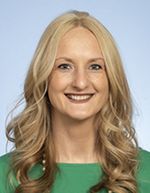
Audra Hamrick, MA, NCC, LPC, Director of Public Health Practice & Undergraduate
Programs at West Virginia University’s School of Public Health
Hamrick is currently the Director of Public Health Practice and Undergraduate
Programs at West Virginia University’s School of Public Health. Audra earned a
BS in Behavioral Science from Glenville State College in 2004 and an MA in Counseling
from WVU in 2009. Hamrick is also a National Certified and Licensed Professional
Counselor. For nine years, she served as a professional school counselor for Monongalia
County Schools. Her last several years were devoted to working with high-risk populations
and implementing trauma-informed practices within schools. Prior to working in
the public school system, Hamrick had six years of experience in adolescent behavioral
health-- including residential clinical treatment, staff development and senior-level
management. In her current role, she is helping to shape future professionals who
will work to prevent and address public health issues such as mental health, substance
abuse, suicide, violence, social determinants and access to care.
Payment Information for Justice-Involved Individuals
During this session participations will review the Jobs & Hope WV program and
the online resource Fairshake. We will also discuss some frequently asked questions
by employers when approached to hire individuals that have been justice involved.
There will also be time for Q&A from the audience.

Deb Harris, Lead Transition Agent, Jobs & Hope WV
In her role as the Lead Transition Agent for Jobs and Hope WV, Harris is part
of a team that supports people in recovery and helps them to find employment. Her
commitment to empowering others is evident as she talks about the statewide program
that launched in 2019. She worked as an AmeriCorps VISTA as she attended Bridge
Valley Community and Technical College, studying behavioral health addictions.
Prior to her current position, she worked as a peer counselor as she worked toward
her bachelor’s degree at West Virginia State University and continued to counsel
students while finishing her master’s degree at Marshall University. Her team of
Transition Agents works statewide with other partners to identify people who can
benefit from the Jobs & Hope program.

Crystal Lively-Thompson, Program Specialist, WV Schools of Diversion and Transition
Lively-Thompson earned her bachelor’s degree in psychology from Mountain State
University, and went on to earn her master’s from Marshall University. She has
worked as an individual, family and child therapist for a community mental health
facility providing various assessment and treatment services. Over the past 11
years, Lively-Thompson has dedicated her time to helping individuals with employment
barriers. Working for nine years as a Senior Counselor and Branch Office Manager
for the WV Division of Rehabilitation Services, she assisted many individuals with
disabilities in obtaining and maintaining gainful employment. For the past year
and a half, she has assisted the WV Schools of Diversion and Transition in their
mission to help those who have been involved in the justice system obtain the same
type of employment independence. She has also served on various committees and
is a current co-chair for the Southern WV Re-Entry Council and is an active member
of the REACH Initiative Board of Directors. Today, Lively-Thompson resides in Fayette
County with her husband, four children and 2 dogs.
Restorative Justice: From Harm to Healing, A Journey Toward Wholeness
Restorative Justice is a response to crime that addresses more than just the law
being broken. It addresses the broken relationships in the community. A practice
of Restorative Justice, the Restorative Circle, is currently being used in schools
as a way to decrease suspension and increase understanding of troubled students;
in the criminal justice systems as a process to bring healing between those harmed
and those responsible for the harm; and in communities as a way to build understanding
and connections. You are welcome to join us to learn more about the use of Restorative
Practices.
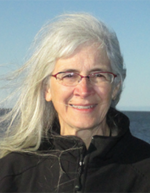
Kay Pranis, Author of five books on Peacemaking Circles
Kay Pranis is a national leader in restorative justice, specializing in peacemaking
Circles. She served as the Restorative Justice Planner for the Minnesota Department
of Corrections from 1994 to 2003. Before that, she worked six years as the director
of research services at the Citizen’s Council on Crime and Justice. She has written
and presented papers on peacemaking Circles and restorative justice in the United
States, Canada, Australia, and Japan. Since 1998, Kay has conducted Circle trainings
in a diverse range of communities—from schools to prisons to workplaces to churches,
from rural farm towns in Minnesota to Chicago’s South Side.
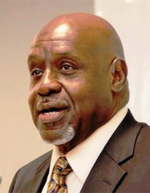
Rev. Ron English, Restorative Justice Facilitator, American Friends Service Committee
English is a native of Atlanta, Georgia, and grew up in the Ebenezer Baptist Church
where he served as ministerial assistant to Dr. Martin Luther Sr. and Dr. Martin
Luther King, Jr., later offering the prayer at Dr. King’s funeral. In 1972, he
was called to pastor First Baptist Church of Charleston where he served for 21
years and was also employed as a Unit Manager at the Mt. Olive Correctional Center
maximum security facility when it opened in 1996. He is a substitute teacher for
Kanawha County schools and a Restorative Justice facilitator with the American
Friends Service Committee.
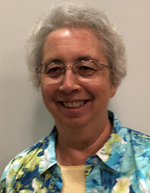
Rose Ann Hefner, Restorative Justice Practitioner, American Friends Service Committee
Rose Ann Hefner, CSJ, is a member of the Congregation of Sisters of St. Joseph,
a licensed Professional Counselor, a Licensed Social Worker and a spiritual director
at WV Institute for Spirituality. She completed the Restorative Justice Circle
Process training with Kay Pranis and Strategies for Trauma Awareness and Resiliency
(STAR I) program at Eastern Mennonite University. She is currently working for
the American Friends Service Committee as a Restorative Justice Practitioner.

Misti Southern, National Board Certified School Counselor
Southern is a lover of people and has a passion for the students, families and
schools that she serves. She works to help students achieve their full potential
while overcoming obstacles and celebrating their individual talents and gifts.
Southern earned her undergraduate degree in Psychology and Criminal Justice from
Fairmont State University and went on to receive her Master’s Degree in School
Counseling from West Virginia University. She’s currently a Restorative Practice
Coach and Facilitator in the school system in Wake County, North Carolina and,
prior to this position, she was a middle school counselor for sixteen years-- with
the last three years in the alternative setting. She also earned her National Board
Certification for School Counseling and has worked as a Counselor Mentor. Southern
believes in Restorative Practices and the positive impact that they can create
in the school environment. In her free time, she enjoys spending time with her
loved ones and puppies, traveling to explore new places, and enjoying a beautiful
sunset.
Criminal Injustice: Confronting Racial Disparities in the Criminal Legal System
The Black Lives Matter movement has brought national attention to the reality that
communities of color have long known to be true: racial disparities pervade the
legal system at all levels. People of color fare worse from arrest rates, to sentence
length, and even recidivism rates. In West Virginia, where Blacks comprise just
3.5% of the state’s population, they account for nearly 12% of the prison population.
This conversation will delve into the history and impact of overcriminalization
of communities, what reforms we can all advocate for, and how to empower our communities
to create change.

Danielle Walker, (D) Monongalia 51, West Virginia House of Delegates
Walker has lived in West Virginia for ten years raising her two sons, taking care
of her mother and breaking barriers in many communities. She has never met a stranger
without pouring her first message of One Love. “I am only me” has set a new acceptance
because it’s a message of unity, inclusion and progress. Despite being a widow,
mother of two disabled kids, community advocate, volunteer and mother of the movement,
she will always exclaim “Words without Works are a Waste.”

Quenton King, Policy Analyst, WV Center on Budget and Policy
King is the criminal justice policy analyst at the West Virginia Center on Budget
and Policy. Before joining WVCBP, he worked for the National Association for the
Advancement of Colored People’s Environmental and Climate Justice Program as a
field organizer and policy specialist. Most recently he served as the Policy Director
for a mayoral campaign in Baltimore, Maryland. King is a native West Virginian
and holds bachelor’s degrees in criminology and Spanish from West Virginia University
and a Master of Public Health in Sociomedical Science from Columbia University.

Takeiya Smith, Community Organizer, Our Future West Virginia
Smith is a racial justice youth organizer working to unite young people across
the state who share common values with the Young West Virginia Power Building Movement.
She was the co-chair of the Call to Action for Racial Equality initiative-- a collaborative
community effort that brought about an eight-point anti-racism with the Charleston
Police Department. Smith is a leader with Black Lives Matter WV, an effort that
began with addressing institutional racism on college campuses. She is also the
lead organizer of the Young West Virginia Power Building Movement.

Rayna Momen, Teaching Assistant, Inside-Out Prison Exchange Program
Rayna Momen is a Morgantown, WV native pursuing a Ph.D. in Sociology at WVU. Their
research focuses on female incarceration in West Virginia and the criminalization
of transgender people. Momen received Instructor Training through the Inside-Out
Prison Exchange Program and goes inside state and federal prisons as a Teaching
Assistant for undergraduate courses, and as a member of a Think Tank and Book Club.
Momen is a longtime volunteer with the Appalachian Prison Book Project and a member
of the WV Criminal Justice Reform Coalition.
Changing the Paradigm: Reframing the Way We Respond to Crises in our Communities
Throughout the U.S. and West Virginia, law enforcement officers have become first-line
responders to behavioral health emergencies. At a time in which a national conversation
is taking place about the role of police in communities, it is timely and important
to think about steps that can be taken to respond more effectively and humanely
to these situations. In this breakout, we will (1) discuss the impact of over-reliance
on the police in addressing mental health and substance use crises, (2) describe
emerging models for more effective crises responses and early identification of
those in need of support, and (3) identify potential steps that can be taken in
policy and practice to implement these models.
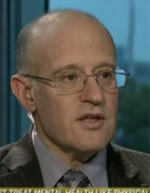
Ronald S. Honberg, J.D., M.Ed Former National Director of Policy and Legal Affairs
at the National Alliance on Mental Illness (NAMI)
With expertise on a broad range of issues at the intersection of mental health,
law and public policy, Honberg has worked extensively on strategies to reduce the
over-representation of people with mental illness and substance use disorders in
criminal justice systems, including law enforcement training, jail diversion and
alternatives to incarceration involving enhanced mental health and substance use
services and supports.

Adrienne Kennedy, M.A., Commissioner, Texas Judicial Commission on Mental Health;
Immediate Past President, Executive Committee, Board of Directors NAMI (National
Alliance on Mental Illness)
Kennedy, a retired educator and researcher, devotes herself to mental health education
and advocacy, after decades of family experience with mental health issues among
five generations –including those with justice involvement. She champions early
identification and intervention, forefront medical research and treatment advances,
community access to trauma-informed care, humane and equitable administration in
criminal justice, as well as proactive redress of disparities across all areas
–especially in education, healthcare and the justice system. In her advocacy efforts,
Adrienne emphasizes the proven impact of interprofessional collaboration and dynamic
partnerships across all major sectors, public and private, specifically those capable
of effectively mitigating Adverse Childhood Events (ACEs), the social determinants
of health and mental health, and the devastating realities of the school-to-prison
pipeline.
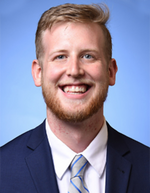
Christopher Seeley, MSW, Program Director for School and Justice Initiative, American
Psychiatric Association Foundation (APAF)
Seeley currently oversees the APAF’s early identification school-based program,
Notice. Talk. Act. TM at School, their efforts with the national Stepping Up Initiative,
and their Judges Psychiatrist Leadership Initiative. Prior to working with the
APAF, he worked with youth and young adults in a wide capacity from diversion programs,
Big Brothers Big Sisters, a support and education group, a youth detention facility,
and a university counseling center.
Seeking Solutions Through Alternatives to Incarceration
When considering the root issues of crime that underlie individuals’ involvement
in the criminal/legal system, incarceration alone does not address those issues.
Alternatives to incarceration can provide needed solutions to a defendant’s underlying
and unaddressed issues, creating cost-effective interventions while promoting community
safety and reducing individual rates of recidivism. Alternatives to incarceration
including treatment courts, diversion, and conditional release into treatment will
be discussed.

The Honorable Michael John Aloi, U.S. Magistrate Judge, Northern District of W.Va.
Aloi is a United States Magistrate Judge for the Northern District of West Virginia,
serving the Clarksburg and Elkins points of holding court. He serves as a Drug
Court Judge for a post-plea but pre-sentence program, one of only 12 diversion
programs in the US court system. Prior to being a Federal Judge, he also served
as a Circuit Judge for Marion County and established the first drug court there.
As a Circuit Judge, he was one of two West Virginia Circuit Judges selected to
attend the National Justice Reinvestment Conference. Aloi believes that while courts
must be a place of accountability and consequences, they must also be a place of
hope and second chances.
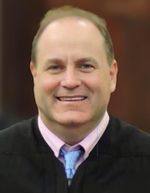
Judge William S. Thompson, 25th Judicial Circuit of W.Va.
Judge William S. Thompson has been a Circuit Judge since 2007 in the 25th Judicial
Circuit and is known for operating several nationally-recognized problem-solving
courts, as well as presiding over several pharmaceutical cases involving the distribution
of opioids in West Virginia.
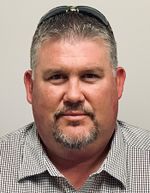
Brent Walters, Chief Public Defender 6th & 24th Judicial Circuit, Public Defender
Corporations
Brent W. Walters is a graduate of Capitol High School and was employed for 9 years
as an Assistant Prosecutor for the Cabell County Prosecutor’s Office. He is currently
employed for over a decade with the Public Defender’s Office for the 6th &
24th Judicial Circuits, where the last two years he has served as Chief Public
Defender. He is also a Drug Court Team Member for over 10 years, serving on both
juvenile and adult drug court teams.

Mallory Sutphin, Recovery Coach, Public Defender Services
Sutphin is a 30-year-old mother and a recovery coach for Public Defender Services,
serving four counties in West Virginia. She has been in her position for almost
three years and is a certified Peer Recovery Support Specialist. In December 2021,
she will have her bachelor’s degree in psychology from Ashford University.
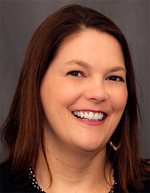
Stephanne Thornton, Criminal Justice Specialist, Public Defender Services
Thornton is the Criminal Justice Specialist for Public Defender Services’ Public
Defender Corporation Resource Center, where she assists public defenders across
the state with research and mitigation. Thornton also conducts mitigation trainings,
writes grants on behalf of Public Defender Corporations, provides guidance to the
public defender recovery coach project and has the pleasure of serving on the NAPD
Steering Committee, the West Virginia State Advisory Committee to the U.S. Commission
on Civil Rights, and the boards of Laotong Yoga, WVAADC and the REACH Initiative.
Outbreak: Covid-19 and Incarceration
Covid-19 presents a number of challenges for jails and prisons. There is a high likelihood
of outbreaks in congregate settings risking inmates and staff, services are interrupted,
and the community faces additional risks. This panel will explore these challenges,
current trends, and potential solutions to these problems.

Catherine Slemp, MD, MPH, Former Commissioner and State Health Officer, West Virginia
Bureau for Public Health
Slemp spent 18 years with the WV Bureau for Public Health, most recently as Commissioner
and State Health Officer. She has also served as state Preparedness Director and
as founding director of the Division of Infectious Disease Epidemiology. She also
works as an action learning coach with the National Leadership Academy for the
Public’s Health and as a member and workgroup lead for the centers for Disease
Control and Prevention (CDC’s) Board of Scientific Counselors, Center for Preparedness
and Response.

Rico Moore, Esq., Criminal Defense Attorney
Rico Moore is a Charleston native and a Graduate of West Virginia State College
and Texas Southern University’s Thurgood Marshall School of Law. Moore works as
a criminal defense attorney and is an active social justice advocate and is the
Curator of Triangle District Media Group.
Eli Baumwell, Policy Director, ACLU of WV
Eli Baumwell is the Policy Director for the ACLU of WV. He is a graduate of Cornell
University and received a JD and a Masters in Public and International Affairs
from the University of Pittsburgh.

Rachel Kincaid, Attorney, Mountain State Justice
Rachel Kincaid is an attorney at Mountain State Justice. Before that, she worked
as a civil rights prosecutor-- first, for the Department of Justice’s Civil Rights
Division Criminal Section, then for the U.S. Attorney’s Office for the Southern
District of West Virginia. Immediately after she graduated from law school, she
clerked for the Honorable Judge Raymond Kethledge on the Sixth Circuit Court of
Appeals. She earned her undergraduate degree at the Eastman School of Music, masters
degrees at the Royal Northern College of Music and Cardiff University as part of
the Marshall Scholarship Program in the United Kingdom, and earned her J.D. from
the University of Virginia School of Law.